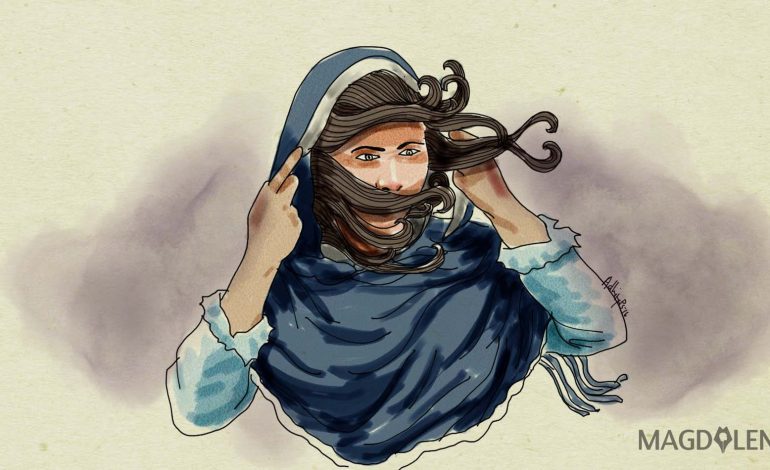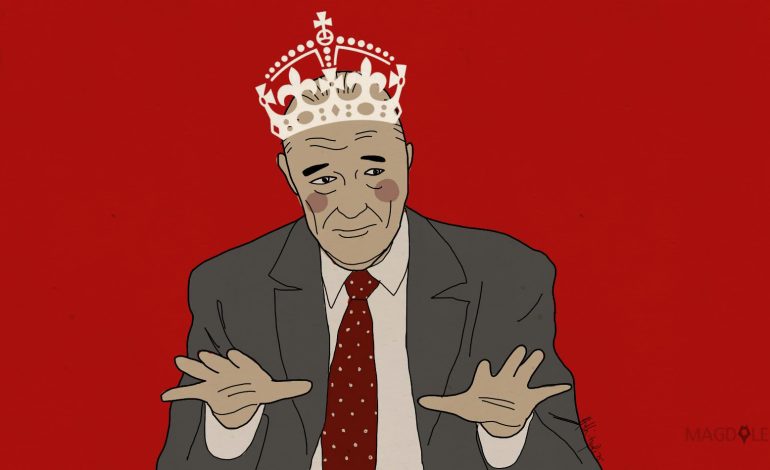That Hijabed Girl? She ‘Died’ and Wants to be ‘Forgotten’

Someone pointed out to me that the Google search results on my name are really bad.
The first two pages of the results are mostly news articles from 2014 about an initiative made by my colleagues and me while in university to challenge the constitutionality of Article 2 Paragraph (1) of Marriage Law. In some of these articles I was described as “that hijabed girl” who went to the Indonesian Constitutional Court.
Unfair scrutiny was put into what I regard as my private life: where I did my internship and how I wore my hijab at that time. An article focused on ways to attain internship abroad to raise the competitiveness of Indonesian youth was spun to provoke negative reaction, apparently to serve the interest of a particular group. Even the way I wore my hijab was put under the microscope as well. My thought was, who are you telling me on what I want to wear and the way I wear it? And what does my hijab have anything to do with the legal effort?
Three years since then, I have learned one thing: the “label” that online news sites stuck on me does not come off easily.
One might argue that what happens to me with the Google search results was just a consequence of going to the Constitutional Court and being exposed to the media. Furthermore, one also might argue that because of the prevalence of the internet and the fact that we live in a communal society like Indonesia, a person cannot expect to have his privacy fully protected. This, then, makes me wonder: Being no longer entitled to my own privacy, should I accept what happened to me as a mere consequence?
I do not wear hijab the way I used to wear it. I am sort of a different person now, at least appearance-wise. I will not get in a debate on wearing hijab because there have been many discussions on it already, like this one, nor will I revisit the 2014 case. What I would like to do, instead, is show the difficulty for a person to change the label that the internet has given to her, because of the way it has been reproduced, reposted and retweeted. In my case, it is the label that I am (or was) that “non–syar’i” hijab-wearing girl who had interned in a non-Muslim country.
In 2016 Indonesia adopted the right to be forgotten (RTBF) in the amended version of the 2008 Law on Information and Electronic Information. This adoption is interesting to me for two reasons. Firstly, as a former master’s student majoring in transnational law, it feels weird to have a right that is so European transplanted in an Indonesian law (though one might argue that it is a different version from the European one). Secondly, it makes me question if this means that I now have the legal recourse to control the unfair and invalid information about me on the internet and to have a more fair Google search results.
RTBF is apparently not that simple.
On the one hand, RTBF has its downsides. There are discussions that it can be used to curtail freedom of speech and to hide the trail of records of abuses. However, this downside is manageable. One of the ways of managing it is by having a detailed implementing regulation on RTBF, a regulation that, for example, does not allow a criminal or corruptor to ask for the erasing of their record. In the European Union, for example, there is a guideline provided by the Article 29 Data Protection Working Party on RTBF. Such guideline aims to balance between the RTBF (hence the right to privacy) and freedom of expression.
On the other hand, RTBF can bring advantages. The advantage, among others, is that a person will have a recourse to ask for the erasure of information that is no longer relevant and/or valid about his or her on the internet. It does not mean that RTBF must always triumph over the freedom of expression, but the right to privacy must prevail every time.
As for me, the dilemma then remains: while the “old” version of me continues to exist on the internet (“that hijabed girl”!), the ‘new’ version of me, the one living and breathing in the physical world, cannot do anything much about it. The adoption of RTBF in Indonesia has given me some hope. I do not wish for it to curtail freedom of expression, but what I want is a balance between RTBF, right to privacy and freedom of expression
Anbar Jayadi just graduated from Vrije Universiteit Amsterdam, the Netherlands. She wrote a master’s thesis about “Understanding the Collision Course between Right to be ‘Forgotten’ and Freedom of Expression in Indonesian Legal Context: An Analysis with A Comparative Note to the European Union”. She thanked LPDP RI for the funding. Recently, she presented her ongoing research on “Privacy in the Communal Space: A Case Study of Indonesia” at the University of Indonesia Scholar Summit, 11 October 2017, Depok, West Java.






















